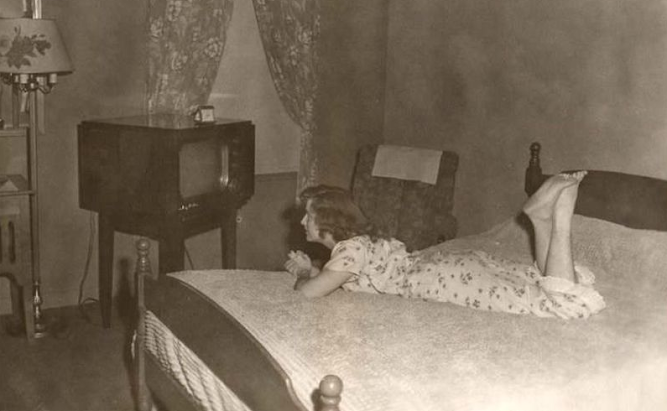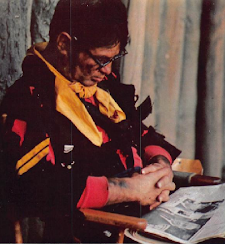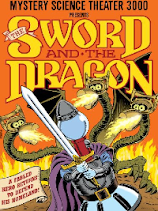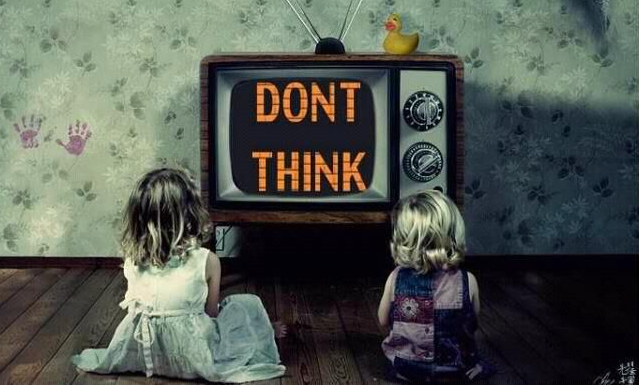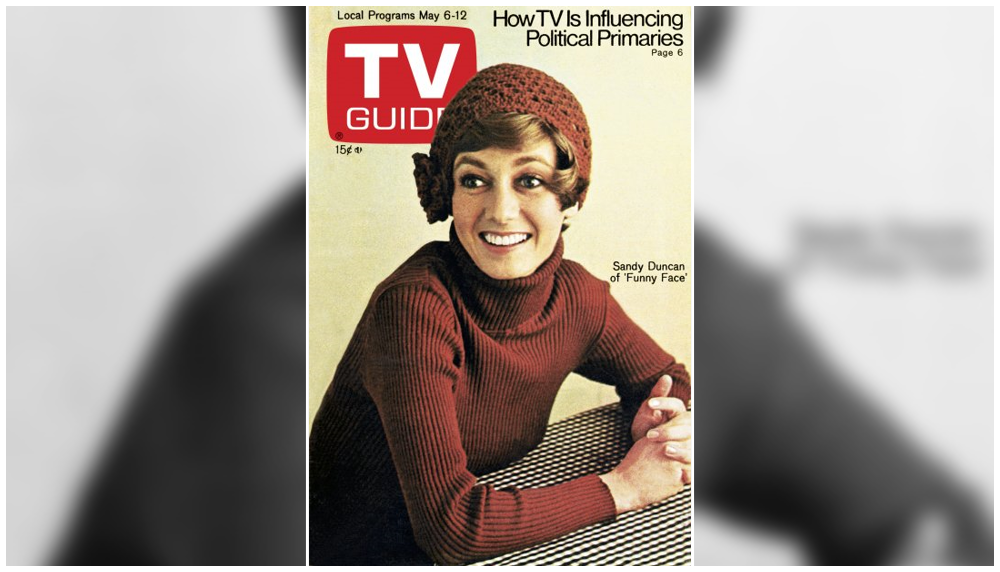ho decides what your children watch on television? The question is much more complex than it seems, because the answer you give will raise all kinds of additional questions, each of them requiring similar answers. At the end, you may want to test yourself on how consistent your answers are.
A few weeks ago—April 1, to be exact—the TV Guide editorial expressed concern about the 25 CBS affiliates that refused to run The Damned on the February 28 CBS Late Movie. Now, a word of exposition, in case we've never discussed The Damned here. It was—still is, for that matter—a 1969 movie by Luchino Visconti, which was among the first X-rated movies ever to be shown on television. It is, according to the editorial, a "brilliant allegory of Nazi Germany," which won raves from many critics, including TV Guide's own Judith Crist, who ranked it #7 on her own l0-best list of 1969 (just behind Midnight Cowboy, which she ranked #6). It also, as one critic pointed out, included murder, incest, cross dressing, pedophilia, suicide, rape, a gay orgy and mass murder. (In other words, typical Weimar Germany.) It had already been heavily edited to get an R rating, and CBS cut another 11 minutes of "objectionable scenes" to show it in a late-night timeslot. One wag ventured that so much had been cut, it should have been called "The Darned."
But back to the editorial. "Obviously, those stations which shied away from showing [The Damned] feared offending some viewers who were aware of the film's original reputation. But the result was that those viewers who wanted to see even a bowdlerized version of the Visconti classic were denied the chance." Some of the stations, it was pointed out, had made their decision even before seeing the film.
The editorial points out that "a station's responsibility for what it puts on the air is to the entire community, including those of us who are more offended by the leering, puerile jokes of some variety and talk shows." And while stations obviously need to "exercise caution" with what they program while children may be watching, the conclusion is that "if they are watching when the CBS late-night movie is on, their parents might be better occupied putting them to bed than by writing letters to stations objecting to anything that may not meet their own personal blandness standards."
That brings us to this week's Letters section, which is dominated by discussion of the April 1 editorial. From similar controversies in the past, we know that the published pro-and-con letters more or less reflect the same proportion that the magazine receives, and in this case we're evenly split, at two supporting the editorial and two opposing.
 |
I was going to put a picture from the movie
here, but I think I'd rather not. |
The arguments can be summed up in these two representative letters: J.R. Kohlhepp of Cincinnati says, "Bravo for your excellent editorial," and notes that their local station, WCPO, was one of the 25 not carrying the movie. "We have sent the station a copy of your editorial in the naive hope of educating them to their responsibility to, as you point out, 'the
entire community,' not merely special vociferous factions. Though their decision was disappointing, it was hardly surprising, since in this town, self-appointed legislators of public morality are in obnoxious abundance."
On the other hand, Marian Cure of Albany, NY speaks against the editorial: "There should be concern for those opposed to having tasteless pornography and violence coming into their homes under the name of 'art.' Parents have every right to be concerned. TV GUIDE—and broadcasters—have no right to dictate when children should be in bed, or what they shall do in the privacy of their homes." To this letter, the editor makes the following response: "There was no pornography in what was telecast. We won't tell you when to put your kids to bed if you won't tell other viewers what they may or may not see on television."
And here we come to the key issue raised by this editorial. TV Guide's response makes sense given their constant aversion to government control of television; it's the old "if you don't want your children watching this movie, change the channel" argument. So far, so good. The answer to the question I posed at the beginning is that it is the responsibility of the parents to decide what their children should watch. Not the networks, not the community. Generally, this would be seen as a classically liberal position.
This, however, is where things start to get slippery, for if it's up to the parents to monitor their children's TV viewing, could not the same thing be said about, say, their education? That parents should monitor what their children are taught in school, and that if they don't approve, they shouldn't allow them to learn it? It's a logical argument, after all—parents should be the guardians of what their children consume, whether it's pop culture like television, or the educational material taught in schools. And in today's political climate, that's a decidedly conservative argument.
I think that in today's world, with more and more people turning away from the traditional programming delivery methods via cord-cutting and streaming services, it's fair to say that parents who are concerned about what their children watch are taking it into their own hands. They're changing the channel or getting rid of the channel altogether. Shouldn't that logic be applied consistently? Wouldn't it follow that parents should have the same rights when it comes to education?
I'm not saying, I'm just saying. As I mentioned yesterday, I love provocative questions.
l l l
 Throughout the 60s and early 70s, TV Guide's weekly reviews were written by the witty and acerbic Cleveland Amory. Whenever we get the chance, we'll look at Cleve's latest take on the shows of the era.
Throughout the 60s and early 70s, TV Guide's weekly reviews were written by the witty and acerbic Cleveland Amory. Whenever we get the chance, we'll look at Cleve's latest take on the shows of the era.
This week, Cleveland Amory takes a rare sojourn into daytime television with a look at General Hospital, ABC's venerable soap opera. And if you're feeling kind of down about how things are going in this old world of ours, Cleve has some words of encouragement for you: until you've seen General Hospital, "you don't know what troubles are."
I don't think I've ever read an Amory review like this; it consists, quite literally, of nothing other than a pair of convoluted storylines. (Probably running at the same time.) And the best part about it (or the worst, depending, I guess, on how you look at it), is that if you think this is typical Amory embellishment, you'd be wrong. It's just a sober, but well-written, look at what happens behind the scenes in your favorite hospital. At this point we should probably be grateful that we don't have government-run healthcare; just imagine how bad things might be then.
To be honest, though, it does make things a little hard to excerpt. But in order to give you a taste of what things are like in dear old Port Charles, let's look at the story of one of its typical residents, Nurse Jessie Brewer (Emily McLaughlin), who's married to Phil but really loves former husband Dr. Peter:
[Phil] had amnesia, and even though he was married to Jessie while he had this amnesia, he didn't know he was, and started going with Nurse Diana. And the next thing you knew, Diana and Phil had a baby. Before they did, though, Dr. Peter had offered to marry Diana, to give the baby a home. So Jessie lost Dr. Peter and wound up with Phil again, who is only interested in Diana's baby. He and Jessie, you see, could never have a baby. So this baby means a terrible lot to him. It makes life just awful for Jessie. And since Phil comes over to Diana's house any old time, it's pretty bad for Diana too. One day she just can't stand it any more. "Phil," she tells him, "he's not your baby, he's not your baby, he's not your baby, he's not your baby." To recap, it's not his baby. Anyway, our guess is we're due for another kidnapping here.
(And you thought The Damned was bad.)
See what I mean? Cleve doesn't have to resort to hyperbole; just reading the storyline is a riot. I don't know how anyone could do it with a straight face. Indeed, as Amory admits at the end, "we just love this show. It's really so awful that it is, in its awful way, wonderful." And it still is—50 years later.
l l l
The first Saturday in May means it's Kentucky Derby time, and you can see the Run for the Roses at 5:00 p.m. on CBS. Will favorite Riva Ridge fulfill his promise as last year's 2-year old champion, and break the 24-year drought between Triple Crown winners? (The answers are yes, he wins; and no, he'll fade in the Preakness, but does win the Belmont Stakes.)
Elsewhere in the sports world, ABC will be televising the fifth, sixth, and seventh games (all if necessary) in the NBA finals between the Los Angeles Lakers and New York Knicks. As it turns out, only one of these three broadcasts will be necessary; Sunday's primetime game (10:00 p.m., ABC) in which the Lakers, winners of a record 60 games during the regular season, batter the Knicks 114-100 to win their first championship since 1954, when they were still in Minneapolis. Not to be outdone, CBS carries the first game of the ABA finals on Saturday (2:00 p.m.), with the New York Nets losing to the Indiana Pacers 124-103; the Pacers will win the championship in six games, their first of three ABA titles in four years. And let's not forget the NHL; CBS carries game four of the Stanley Cup final between the New York Rangers and Boston Bruins (Sunday, 2:00 p.m.), a series won by the Bruins in six games.
You might have noticed that New York teams played in all three of this winter's finals. They lost all three.
l l l
One of the reasons for the emphasis on sports is that we've moved into the rerun season, and until the summer replacement series begin to air, there isn't a whole lot new to talk about. Of course, in eleven years that hasn't stopped us, and it's not about to start now.
However, we'll start with some things that actually are new: an ABC News Special on "The Masks We Wear" (Monday, 8:00 p.m.), a personality study on "the roles people play," hosted by Harry Reasoner. How do we see ourselves, and what do our clothes, gestures, and speech reveal about us? And how do others see us? I suppose today we'd think of these masks as our "avatars."
On Thursday, Playhouse New York takes a look at "The '40s: The Great Radio Comedians" (8:30 p.m., PBS), which must be a wonderful journey back to look at the Golden Age of Radio, with clips from classic shows featuring Jack Benny and Fred Allen; Bing Crosby and Bob Hope; Edgar Bergen and Charlie McCarthy; interviews with Benny, Crosby, and George Burns; and a segment on Fibber McGee and Molly, among other highlights. What a great 90 minutes.
Documentaries aren't all that's new; on Sunday, it's a
Special London Bridge Special (9:00 p.m., NBC), with a star-studded lineup hosted by Tom Jones and Jennifer O'Neill, with Kirk Douglas, Rudolf Nureyev, and—well, you can see them for yourself listed in the ad over there on the left.
A couple of first-run movies also make the cut this week: Enter Laughing (Sunday, 7:30 p.m., CBS), Carl Reiner's 1967 film version of his 1963 Broadway hit, which Judith Crist says is "warm and funny and on occasion hilarious"; despite Reni Santori replacing Alan Arkin in the lead role, Crist assures us that there the movie "has much to compensate" for his absence.
On Friday, PBS shows Our Daily Bread (8:30 p.m.), the controversial 1934 King Vidor drama that was denounced variously as leftist by some American newspapers, and capitalist propaganda by the Soviets. It tells the story of farmers banding together to form a cooperative community in the face of the Great Depression. Crist calls it "a piece of Americana to revel in."
That's not to say that there isn't anything worth a second look this week. Chief among them is Monday's repeat of the Emmy-winning special Annie, the Women in the Life of a Man (10:00 p.m., CBS), with Anne Bancroft in a tour de force portraying the different faces a woman wears based on the roles played by the different men in her life. (I wonder if she would have benefited from watching that documentary?) Playing the men are Jack Cassidy, Lee J. Cobb, John McGiver, Dick Shawn, and David Susskind.
l l l
Finally, since we started on such a grim note, we should end on a lighthearted one. And what could be better than Robert Meyers's story on the man they pay $1,000 an hour to listen to jokes? It's none other than Peter Marshall, host of NBC's hit game show The Hollywood Squares, and while contestants do compete, and money does change hands, "Marshall never lets the game get in the way of the jokes. His primary task is to feed the panelists the straight lines they need for their gags."
Marshall got his training as a straight man as part of the comedy team Noonan and Marshall, with comedian Tommy Noonan. Marshall explains his role as "the one who's got to pace the act, set up the rhythms, know when to cut and move—but also when not to get in the way." It's a phrase you hear from others as well; "He goes along with our gags," Vincent Price says. "He feeds us openings but never gets in the way."
There's no question that, despite the lineup of stars in the squares, Marshall is the glue holding the show together. "You won't find the same sense of family we have here," Suzanne Pleshette says. "Peter creates the atmosphere. Wally Cox says that, even with all the one-liners flying around, "Peter remains an oasis of peace." And Charley Weaver adds, "If we get too wild, he scolds us. He has great regard for the show."
As for those one-liners:
Peter: "What makes water 'hard'?"
Charley Weaver: "Winter."
Peter: "Is it true that a new millionaire is made every half hour?"
Rose Marie: "Not by me."
Marshall doesn't mind being the straight man, though; as Meyers says, to make a quarter of a million dollars each year, you don't need to be a genius, a saint, or be the world's greatest actor. All you need is "a strong voice, a pretty face, a professional bearing, the ability to handle temperamental guests, and the willingness (at those prices, who wouldn't be willing?) to let other people tell you jokes." Or as Peter Marshall says, "It cracks me up to see actors who think they're important. Just stay off the air for two years and see what happens. I couldn't care less if I get remembered."
Or, as they might have put it on the show:
Peter: "True or false: having a good memory is a sign of a well-adjusted personality.
Karen Valentine: "What was the question?" TV


